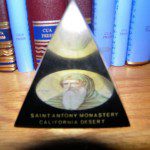This week President Obama addressed the United Nations and presented a speech that includes some important considerations related to religion and freedom of expression. But it is missing a crucial element.
The anxiety hung in the air in New York as the United Nations met with many of its members still reeling from the unrest in the Muslim world. In response Obama presented ideas that one writer, Lauren Markoe writing for Religion News Service, found so important that she suggests it comes close to representing an "Obama Doctrine on Religion."
Markoe identified five points in the speech comprising this doctrine. These include:
"1. Blasphemy must be tolerated, however intolerable." This is perhaps the most controversial aspect of the speech, and the one least likely to be seriously entertained by those Obama seeks to persuade. While the rallying cry in the United States in response to the protests surrounding a controversial film was largely one for freedom of speech, for much of the Muslim world this is intolerable. The idea that freedom of expression should be construed so broadly as to permit the desecration of a prophet, seen as embodying and symbolizing the essence of Islam, will be sternly resisted. Even so, the President is on the right track, and the seemingly counter-intuitive idea (from some Muslim perspectives) that "the strongest weapon against hateful speech is not repression, it is more speech," is an idea that must eventually be embraced if we are to avoid similar protests in the future.
"2. Religious respect is a two-way street." With this second point Obama presents an idea that may present challenges to those of a variety of religious traditions. It is one thing to ask or demand respect for your religion when it is under attack. It is quite another thing to extend the same courtesy to those in other traditions, particularly those you may not like very much. We will have made great strides when we arrive at the point that Muslims condemn the hate against Jews, when Christians condemn the hate against Pagans, and when Buddhists condemn the hate against Hindus. The President's remarks with this point present us with another key element.
"3. Turn the other cheek." This element is related to the first above, the idea that there is no justification for violence, whether offensive speech or the unflattering depictions of that which others hold sacred. Here Obama taps into the way of non-violence, with "turn the other cheek" found in the Christian tradition in the teachings of Jesus. But other religious traditions incorporate something similar and have much that they can tap into in their own traditions as they harness the best within them to follow the path of non-violence in response to provocation.
4. Religious pluralism and diversity. Obama rightly pointed to the great American experiment of a nation with great religious diversity but one which, for the most part, exists in peaceful co-existence. Curiously, Markoe labels this part of the President's speech "One nation under God," but this title illustrates one of the challenges we face in contemporary American pluralism. In the Judeo-Christian dominance of the past it was indeed a nation united generally under the idea of one deity understood from a general Christian perspective. But with the increasing presence of the world's religions in the public square, America must be understood as a unity, but under a multiplicity of conceptions of the sacred. In addition, America is now feeling the strain of religious diversity, with incidents of violence against Muslims and Sikhs on the rise and symptomatic of these struggles. Yet even with these challenges America can serve as a model for a nation that embraces religious diversity while maintaining a form of unity.
"5. The danger of extremism." Markoe completes her analysis of the Obama Doctrine on Religion with a reference to the President's call to marginalize those who resort to violence for whatever reason, whether hatred of America or Israel. Here Obama could have gone further and mentioned the related danger of thinking that it is just "them" who harbor extremism and the extremists. Muslim and Jew, Christian and Pagan, Buddhist and Hindu, struggle with the presence of those in their religious communities who fuel the flames of violence. Extremism must be addressed within religious communities by their own adherents and in partnership with like-minded individuals across religious traditions.
All of these elements are important, and can comprise not only an Obama Doctrine of Religion, but also point the way toward a general prescription for interreligious engagement in a post-9/11 world. The President is almost there, but one significant element is missing. He doesn't go far enough. How do we address a situation where people must overcome religious stereotypes and prejudices, to arrive not merely at a place of tolerance, but rather to genuine relationships, understanding, and embrace of diversity and our differences? The answer is found in relational encounters where we share our disagreements and competing truth claims in a process of civil contestation.




